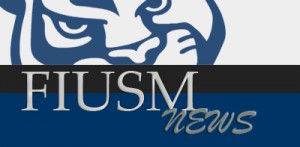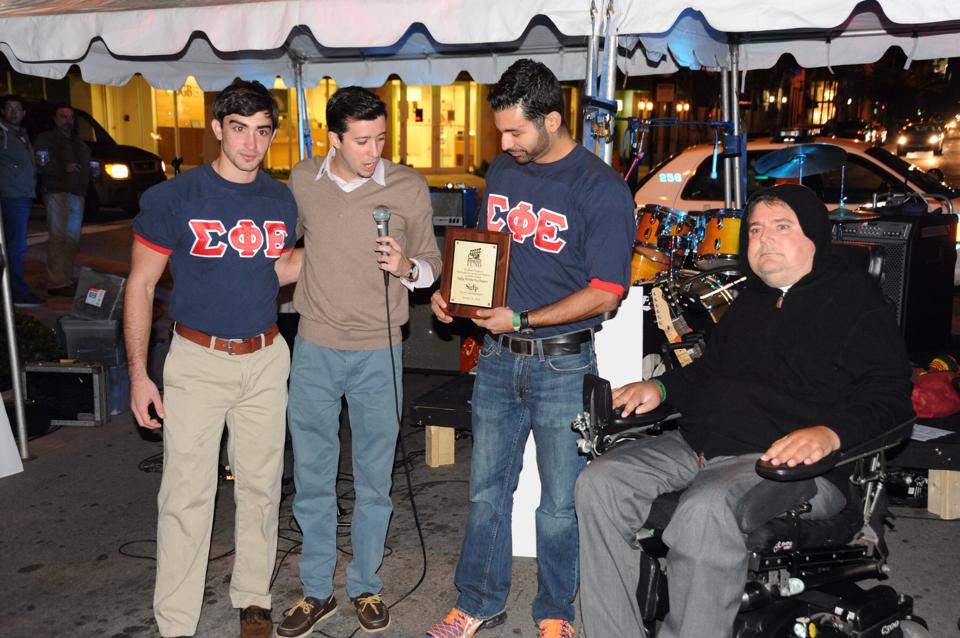By: Mariella Roque/Staff Writer
The loaded jargon of science has often driven people away from trying to understand its content. The Science Café lecture series that started last Saturday is seeking to make this a situation of the past.
A year-long course by FIU’s Quantifying Biology in the Classroom program, The Science Café held its first of four open lectures on Feb. 11 at the Coral Gables Museum.
It featured the topic of stem-cell research and disease therapy.
Each session, according to QBIC Secretary Sophie Bhaijee, is geared to “help students learn to talk about science in terms that will make the general public understand.”
The three students planning the event were Areej Bukhari, Alana Van Dervort and Myrlyn Verdelus.
“The aim [of Science Café] is to put science back in culture and culture back in science,” said Bukhari, a biology student in the course.
When choosing the discussion topics, the class distributed surveys to communities around the University. The survey consisted of a section where one could rate, on a scale of one to five, the interest one has in a certain science-related theme.
A total of 210 people were interviewed.
The top four topics were alternative energy, cancer, nutrition and stem-cell research.
“Science cafes are not [usually] held by students and here [the students are] doing this on their own,” said Anya Goldina, professor of Science Café. “We actually brought the concept of Science Café into a class.”
The Science Café was an idea derived from the Café Scientifique, a grassroots movement started in 1998 in the United Kingdom. The idea was to create an informal setting that would bring together experts in science and technology and the general public.
The program has spread all over the world and was adopted in 2007 by FIU’s QBIC, a four-year program providing “a more in-depth approach to the biological studies.”
At the lecture, a scientist delivers a brief speech on a modern or widely discussed issue and the attendants would be open to an extensive conversation.
This session’s speaker was Mathew William Lensch, an instructor of pediatrics from the Harvard Stem Cell Institute.
“[Lensch] is thoughtful, impassioned and wholly devoted to the pursuit of scientific inquiry,” Van Dervort said. “He’s known among his Harvard colleagues as a tireless mentor.”
A number of members of the Miami community, both young and elderly, attended the event, including other FIU students.
“We were going to be discussing stem cells in my bio-medical class,” said biology major Victoria Campdesuner. “My professor suggested in coming.”
At the event, Lensch used a PowerPoint presentation and several charts and graphs to explain what a stem cell was and the implications of using it in the scientific field.
He also discussed the history of stem-cell research and named a myriad of scientists who have made advancements in the field.
“For a very long time, we, as people, have had this notion of fixing our parts…when they are diseased,” Lensch said.
Following his presentation, the audience raised questions regarding stem cells, varying from stem-cell regeneration to the diseases that could be treated through stem-cell research.
“Dr. Lensch was a great speaker,” Goldina said. “We’re very lucky.”
When questioned about what the “next major breakthrough” would be in treatment using stem cells, Lensch named diseases “where one type of cell is missing” like Parkinson’s rather than those “that are more complex, where there are a lot of different things going on.”
“A lot of people from the community came out,” Van Dervort said. “I’m really happy with how it went.”
The time and location for the last three Science Cafés have not yet been decided.






Be the first to comment on "Lecture makes science simple"